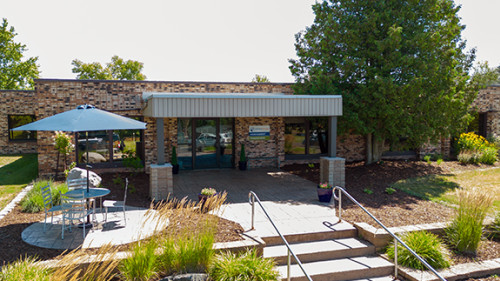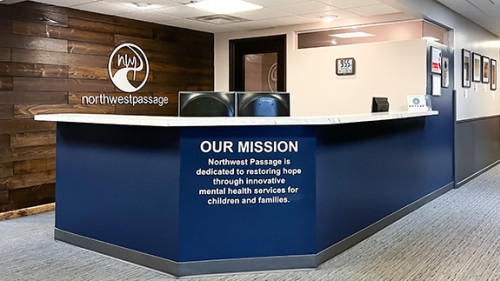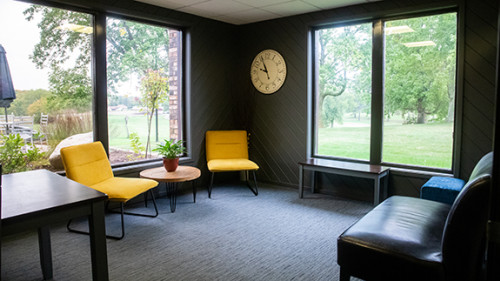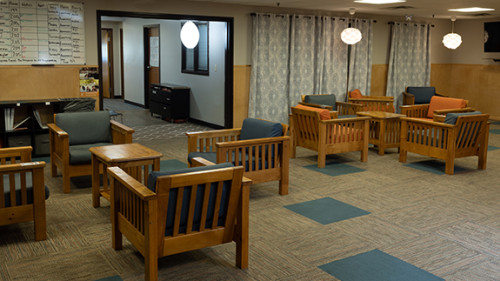






Northwest Passage Hope and Healing - Prairieview
Treatment Focus
At this center, you receive personalized care for mental health conditions. They provide therapy and tailor treatment to your unique needs, diagnoses, and preferences.
Primary Level of Care
Offering intensive care with 24/7 monitoring, residential treatment is typically 30 days and can cover multiple levels of care. Length can range from 14 to 90 days typically.
This provider hasn't verified their profile's information. Are you the owner of this center? Claim your listing to better manage your presence on Recovery.com.
Treatment Focus
At this center, you receive personalized care for mental health conditions. They provide therapy and tailor treatment to your unique needs, diagnoses, and preferences.
Primary Level of Care
Offering intensive care with 24/7 monitoring, residential treatment is typically 30 days and can cover multiple levels of care. Length can range from 14 to 90 days typically.
Private Pay
You pay directly for treatment out of pocket. This approach can offer enhanced privacy and flexibility, without involving insurance. Exact costs vary based on program and length of stay. Contact the center for specific details.
Northwest Passage Hope and Healing - Prairieview
Northwest Passage Hope and Healing - Prairieview
About Northwest Passage Hope and Healing - Prairieview
Northwest Passage's Prairieview campus, located in the lakes and woods region of Northwest Wisconsin, is a residential treatment facility designed to meet the unique needs of adolescent females and gender-diverse adolescents aged 12 to 17. The campus is situated on 25 acres of rolling prairie in Frederic, Wisconsin, featuring a full-service cafeteria, on-site treatment staff, classrooms, and lounge areas. It also includes an on-site wellness center with a gymnasium, fitness center, classrooms, and an outdoor education classroom. The grounds offer opportunities for experiential learning, including gardens, a greenhouse, a hammock village, nature trails, an orchard, a playground, and a fire pit.
Build Resilience and Heal Holistically
The program focuses on building resiliency by developing a therapeutic lifestyle based on their grounding principle, The PassageWay. This approach helps each young person enhance emotional regulation, develop healthy coping skills, foster positive relationships, and establish community connections. Services include experiential learning, innovative mental health interventions, and safe relationship-building. Evidence-based interventions such as dialectical behavior therapy (DBT), SMART skills, and Attachment, Regulation, and Competency (ARC)-informed practices are integrated into treatment plans. Engagement in activities like hiking, canoeing, volunteering, nature photography, and equine therapy is encouraged to promote holistic healing.
An Inclusive and Welcoming Environment
Prairieview serves youth from diverse backgrounds, cultures, and experiences, maintaining a commitment to providing an inclusive environment where all individuals feel welcomed and supported. The facility offers 24 beds across three units in a comfortable dorm-like setting, with an approximate average stay of 6 to 10 months and a minimum staff-to-client ratio of 1:4. The multidisciplinary team collaborates with youth and their families to help them see themselves in a new light, promoting resilience, determination, collaboration, and a strong work ethic throughout the recovery journey.
Center Overview
Treatment Focus
At this center, you receive personalized care for mental health conditions. They provide therapy and tailor treatment to your unique needs, diagnoses, and preferences.
Pricing and Program Length
Estimated Center Costs
The cost listed here (Call for Rates), is an estimate of program cost. Center price can vary based on program and length of stay. Contact the center for more information. Recovery.com strives for price transparency so you can make an informed decision.
Levels of Care



Your Care Options
Specializations
Adolescents
Teens receive the treatment they need for mental health disorders and addiction, with the added support of educational and vocational services.
Who We Treat
Adolescents
Teens receive the treatment they need for mental health disorders and addiction, with the added support of educational and vocational services.
LGBTQ+
Addiction and mental illnesses in the LGBTQ+ community must be treated with an affirming, safe, and relevant approach, which many centers provide.
Approaches
Holistic
A non-medicinal, wellness-focused approach that aims to align the mind, body, and spirit for deep and lasting healing.
Individual Treatment
Individual care meets the needs of each patient, using personalized treatment to provide them the most relevant care and greatest chance of success.
Gender-Specific
Separate treatment for men or women can create strong peer connections and remove barriers related to trauma, shame, and gender-specific nuances.
Therapies
1-on-1 Counseling
Patient and therapist meet 1-on-1 to work through difficult emotions and behavioral challenges in a personal, private setting.
Equine Therapy
Guided interactions with trained horses, their handler, and a therapist can help patients improve their self-esteem, trust, empathy, and social skills.
Family Therapy
Family therapy addresses group dynamics within a family system, with a focus on improving communication and interrupting unhealthy relationship patterns.
Life Skills
Teaching life skills like cooking, cleaning, clear communication, and even basic math provides a strong foundation for continued recovery.
Nutrition Counseling
Nutritious food helps patients heal from within, setting them up for mental and bodily wellness as they learn about healthy eating.
Conditions We Treat
Anxiety
Anxiety is a common mental health condition that can include excessive worry, panic attacks, physical tension, and increased blood pressure.
Bipolar
This mental health condition is characterized by extreme mood swings between depression, mania, and remission.
Depression
Symptoms of depression may include fatigue, a sense of numbness, and loss of interest in activities. This condition can range from mild to severe.
Obsessive Compulsive Disorder (OCD)
OCD is characterized by intrusive and distressing thoughts that drive repetitive behaviors. This pattern disrupts daily life and relationships.
Post Traumatic Stress Disorder
PTSD is a long-term mental health issue caused by a disturbing event or events. Symptoms include anxiety, dissociation, flashbacks, and intrusive thoughts.
Self-Harm
The act of intentionally harming oneself, also called self-injury, is associated with mental health issues like depression.
Trauma
Some traumatic events are so disturbing that they cause long-term mental health problems. Those ongoing issues can also be referred to as "trauma."
Languages
Aftercare
Care Designed for Your Needs
Personal Amenities
Amenities
Special Considerations
Gender-specific groups
Patients in gender-specific groups gain the opportunity to discuss challenges unique to their gender in a comfortable, safe setting conducive to healing.





